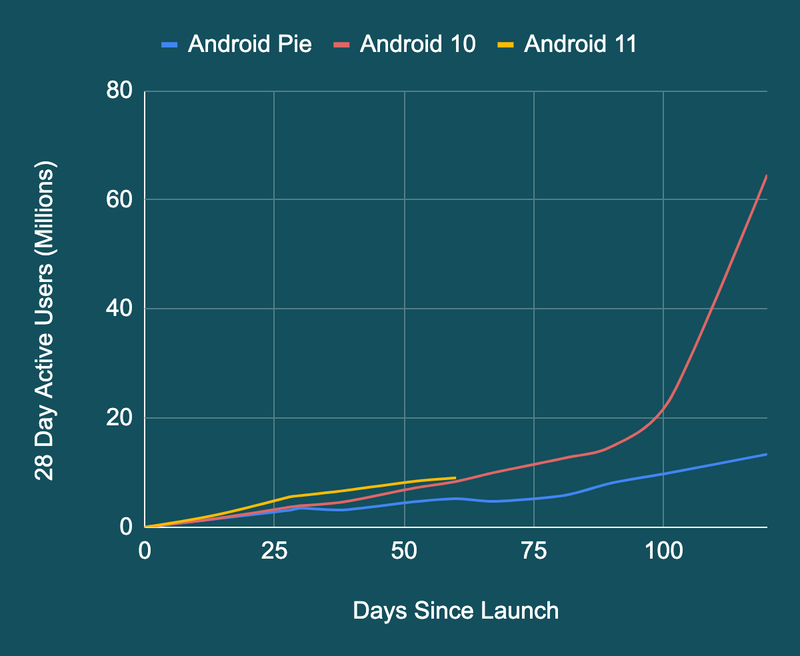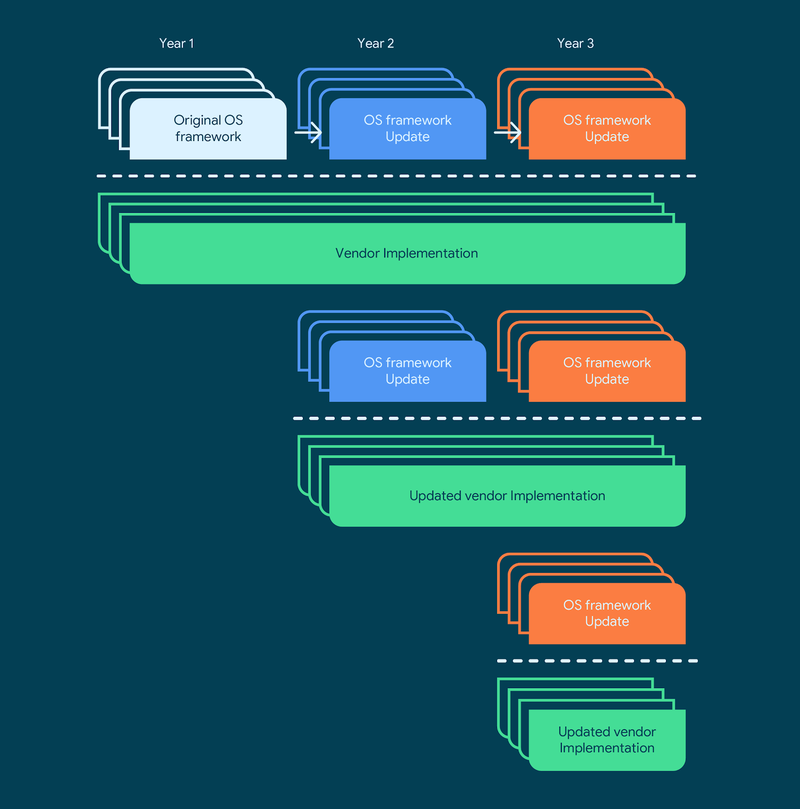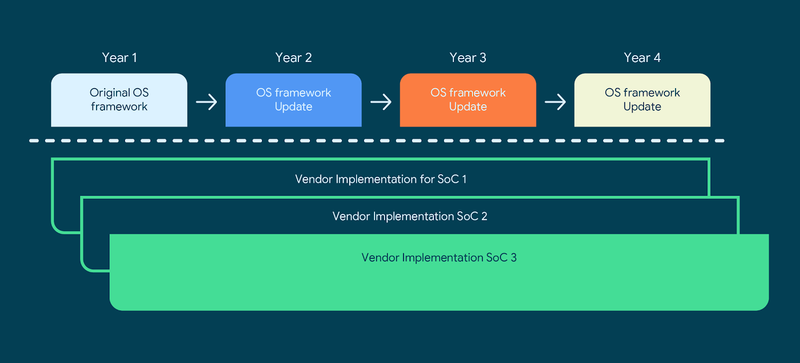Qualcomm and Google pledge to clean up the Android update situation with four years of updates

Get the latest news from Android Central, your trusted companion in the world of Android
You are now subscribed
Your newsletter sign-up was successful
What you need to know
- Qualcomm has announced it's working with Google to expand Project Treble.
- The partnership aims to bring up to 4 years of updates to Android devices powered by Qualcomm chips, starting with the Snapdragon 888.
- It's still up to smartphone OEMs on whether or not they want to continue providing updates.
The Android update process has always been a mess and was once the main pain point for users. They have admittedly gotten better over the past several years, thanks to Google's push for Project Treble, which it introduced in 2017 as part of Android 8.0 Oreo. In a nutshell, Project Treble separates Android into different parts, which is supposed to make it easier for Android OEMs to update what they need and push them out quicker. It was a bit of a slow uptake, but OEMs have managed to speed up the pace at which major updates are pushed out to devices, especially with Android 10. And while the update situation for Android is much improved, Qualcomm and Google have announced a partnership to expand Project Treble that should make the Android update process even better.
The new partnership between Google and Qualcomm brings enhancements to Project Treble that will make it easier for OEMs to build their own OS implementations on top of the Android framework. The way this is done is by addressing the way in which the Android update process was handled until now. Android is found on many different types of devices with varying capabilities, and OEMs like to differentiate their devices and put their own flair on top of Google's OS framework. That framework, as well as any updates to it, has to be altered for different chipsets that have different requirements. OEMs have to account for the various frameworks when building out their implementations on different chips, which adds more work for them. In a way, Project Treble made things a bit more complicated for vendors.
Going forward, the new enhancements should make things easier to develop and roll out an Android update by just utilizing the same OS framework across different chips. Qualcomm's Snapdragon chipsets will utilize this enhanced Project Treble, which will be included with Android 11, to allow for the same OS framework and therefore vendor implementations across chips, which should simplify the update process and hasten the time when updates reach different smartphones:
This dramatically lowers the number of OS framework and vendor implementation combinations that Qualcomm has to support across their mobile platforms and results in lowered engineering, development, and deployment costs.
Because of the way updates are going to be handled now, Google and Qualcomm are confident in their ability to "support four Android OS versions and four years of security updates" across devices running Qualcomm's new Snapdragon chips. It's important to note the wording though, as "four Android OS versions" does not necessarily mean four years of major updates. The upcoming Snapdragon 888 will be the first chipset to support the newest enhancements to Project Treble, and so with Android 11, that will count as the first OS version. Qualcomm's PR rep clarified this matter, saying that "Qualcomm will support the launch version + 3 OS upgrades, for a total of 4 major Android OS versions. Snapdragon 888 will support Android 11, 12, 13, and 14." So the promise is essentially for three major OS updates, which some vendors already started promising for their devices. Google Pixel smartphones lead the pack, and some of the best Samsung phones from this year are among the devices expected to receive three major software updates.
Of course, it's important to note that while Qualcomm and Google are addressing ways to make it easier for OEMs to update their smartphones, that doesn't necessarily mean that every one of them is going to actually follow through with providing three major Android updates or four years of security updates. Turnaround times have improved, but there's still plenty of work to be done, and not every OEM has the money or resources to continue supporting devices for that long. Google and Qualcomm are simply laying down the groundwork, and it's up to each individual OEM to take it and run with it.
Still, it's promising to see the new focus on making the Android update process easier for OEMs, especially as it starts trickling down to mid-tier and lower-cost smartphones running Qualcomm's upcoming chips. Flagships are normally the first, and sometimes only, smartphones to receive major OS updates, so these new enhancements really have more impact on the mid-range and entry-level smartphones, as well as for OEMs that don't currently work with Qualcomm on providing updates beyond the initial support of the chip.
Have you listened to this week's Android Central Podcast?
Get the latest news from Android Central, your trusted companion in the world of Android

Every week, the Android Central Podcast brings you the latest tech news, analysis and hot takes, with familiar co-hosts and special guests.

Derrek is the managing editor of Android Central, helping to guide the site's editorial content and direction to reach and resonate with readers, old and new, who are just as passionate about tech as we are. He's been obsessed with mobile technology since he was 12, when he discovered the Nokia N90, and his love of flip phones and new form factors continues to this day. As a fitness enthusiast, he has always been curious about the intersection of tech and fitness. When he's not working, he's probably working out.



